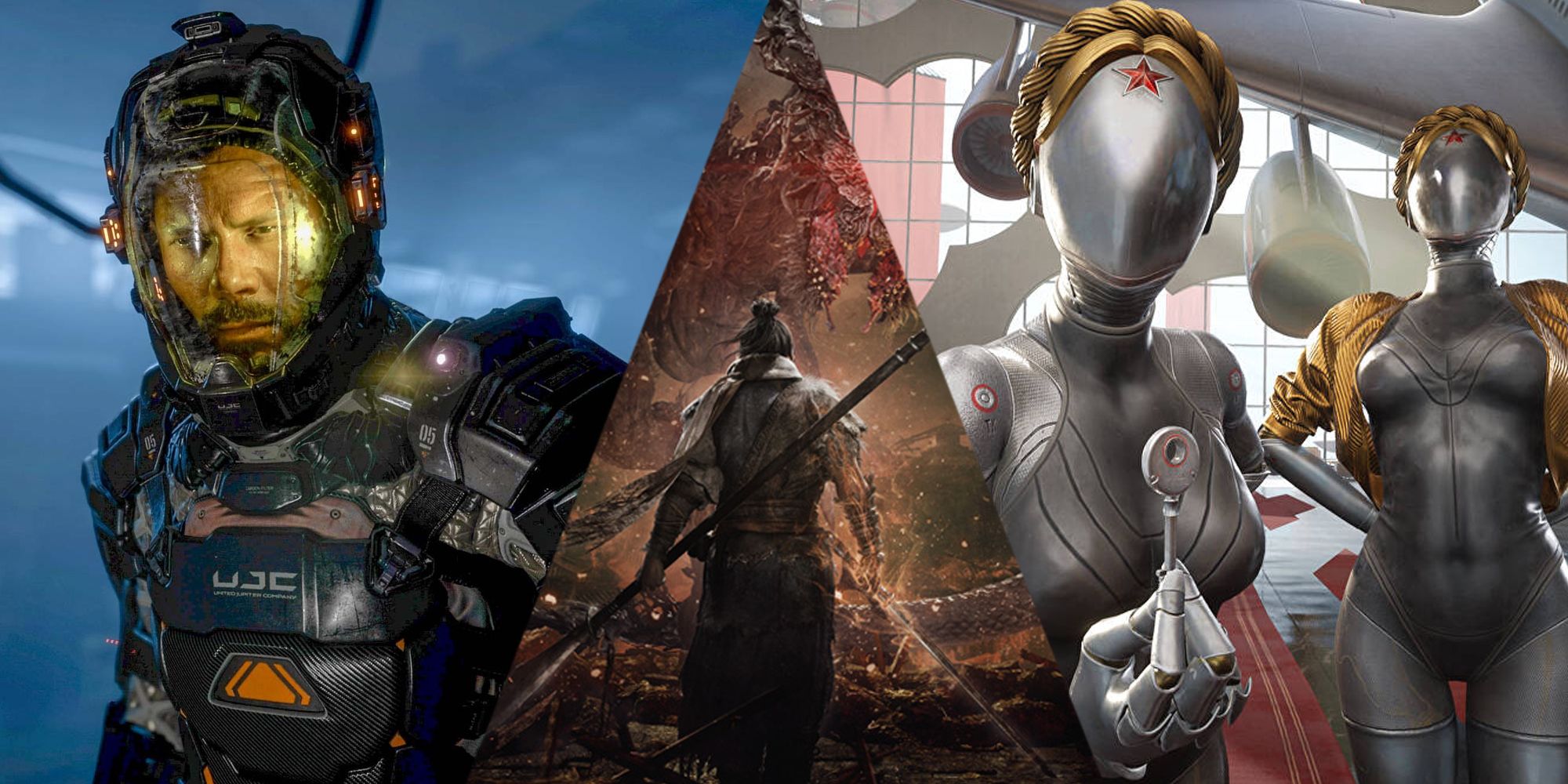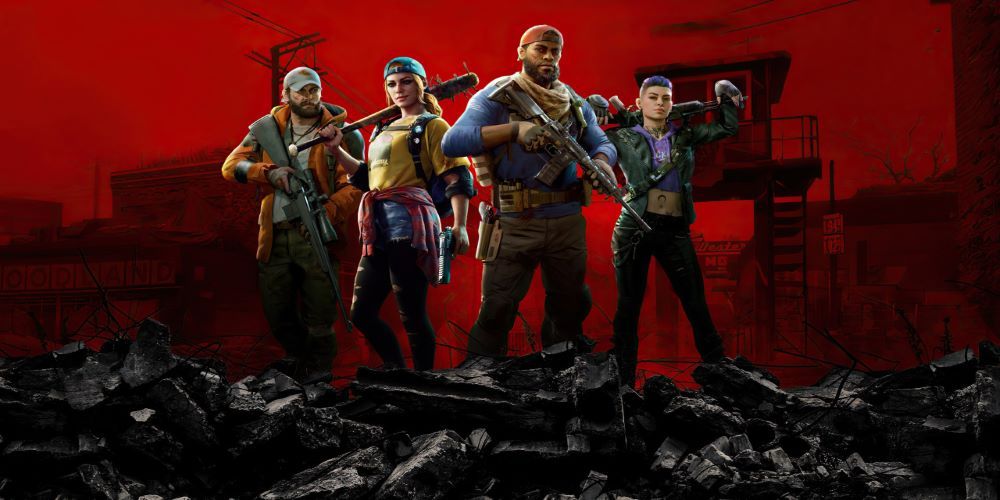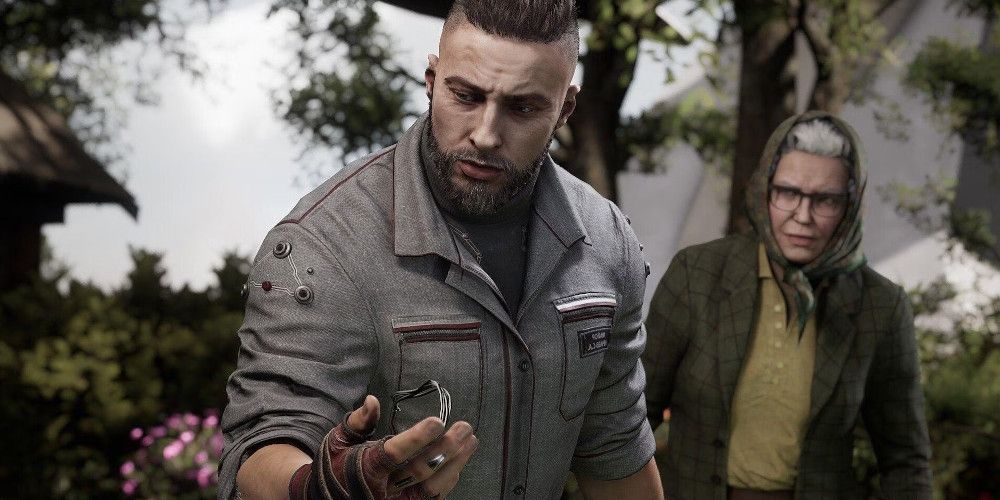In the past three months alone, we’ve had The Callisto Protocol, Atomic Heart, and Wo Long: Fallen Dynasty, all of which failed to capture the magic of games that inspired them. Spiritual successors are back in vogue, but playing them is like walking through a funhouse at a carnival and seeing your own reflection distorted in the mirror. It’s familiar, but everything feels off.
Such games are desperate to drag the past kicking and screaming into the modern era, but refuse to accept that being the same thing all over again will inevitably label them as unoriginal cash grabs. Or worse, they risk being called sequels in everything but name. The Callisto Protocol added a clunky melee system so it could proudly say it isn’t just Dead Space 4; Back 4 Blood integrated cards to try and differentiate itself from Left 4 Dead, and Wo Long: Fallen Dynasty implemented a clunkier version of Sekiro’s deflect mechanic so it could claim it isn’t just Nioh 3—it is.
By adding needless mechanics just to be different from the original, they’re often ripping away what made them so special in the first place. Dead Space gave you a unique arsenal of weapons designed around cutting limbs off necromorphs, while The Callisto Protocol hands you a baton and a few generic guns; Atomic Heart drops the tight-knit immersive sim environments in favour of a generic open-world; Left 4 Dead is simple and intuitive—you find everything you need within the levels themselves—but Back 4 Blood overcomplicates the formula by throwing in cards, loadouts, and heroes, and Wo Long: Fallen Dynasty tries to shake-up combat from Nioh, only to make it all too easy.
The need to be different is a fundamental misunderstanding of what makes spiritual successors work. Some of the most popular and influential games are spiritual successors—BioShock emerged from System Shock 2, Half-Life came from Quake, Elden Ring spawned from Dark Souls, and Call of Duty grew from Medal of Honor: Allied Assault. They can and do work, but the current trend is to make small tweaks to be different, like copying your friends’ homework and trying not to be caught out by the teacher. What made the best spiritual successors succeed was innovation, like Half-Life reinventing the FPS genre to be something that could tell stories, or Call of Duty defining the online shooter landscape in ways that can still be felt almost two decades later. They didn’t change one detail to stand out, they built on the back of the originals to do something completely new.
Elden Ring wasn’t just “let’s make Dark Souls but open-world”, it baked the design philosophy of Dark Souls into an open world, completely upending the genre and its conventions as we know it. It pushed open-world games to new heights alongside Breath of the Wild, Death Stranding, and Sable. In comparison, Wo Long: Fallen Dynasty doesn’t do anything ‘new’ for the Souls-like genre, it just mixes and matches different staples to try and create something distinct from Nioh, while inadvertently losing all identity of its own. This is the key difference. The motive should not be to recreate a nostalgic experience, but to take these original ideas and see how much further you can push them.
The concept itself isn’t bad—we wouldn’t be where we are in gaming without spiritual successors. But the recent trend is a symptom of gaming as a whole right now, and that’s its obsession with the past. We’re remaking every single gem we’ve ever loved, from games that are ten years old to ten minutes, obsessed with familiarity rather than looking forward. So it’s no surprise that spiritual successors are becoming another cog in that whirring factory of squeezing serotonin from our memories, trying desperately to chase the same highs as remakes. That’s never been what spiritual successors are, or at least, what the good ones are.
For every Elden Ring, we have five Back 4 Bloods—it’s disappointing, and only stifling creativity. Games take so much more time and money to make now, and yet so many are busy making things we’ve already played when we could be using the classics as a springboard to try new things. Not different for the sake of marketing spiel, different for the sake of evolving genres and pushing them to new limits, using the advances we’ve made in tech to do what games couldn’t so long ago. It’s mostly a pipe dream, but at least, for every five Back 4 Bloods, we have one Elden Ring.



